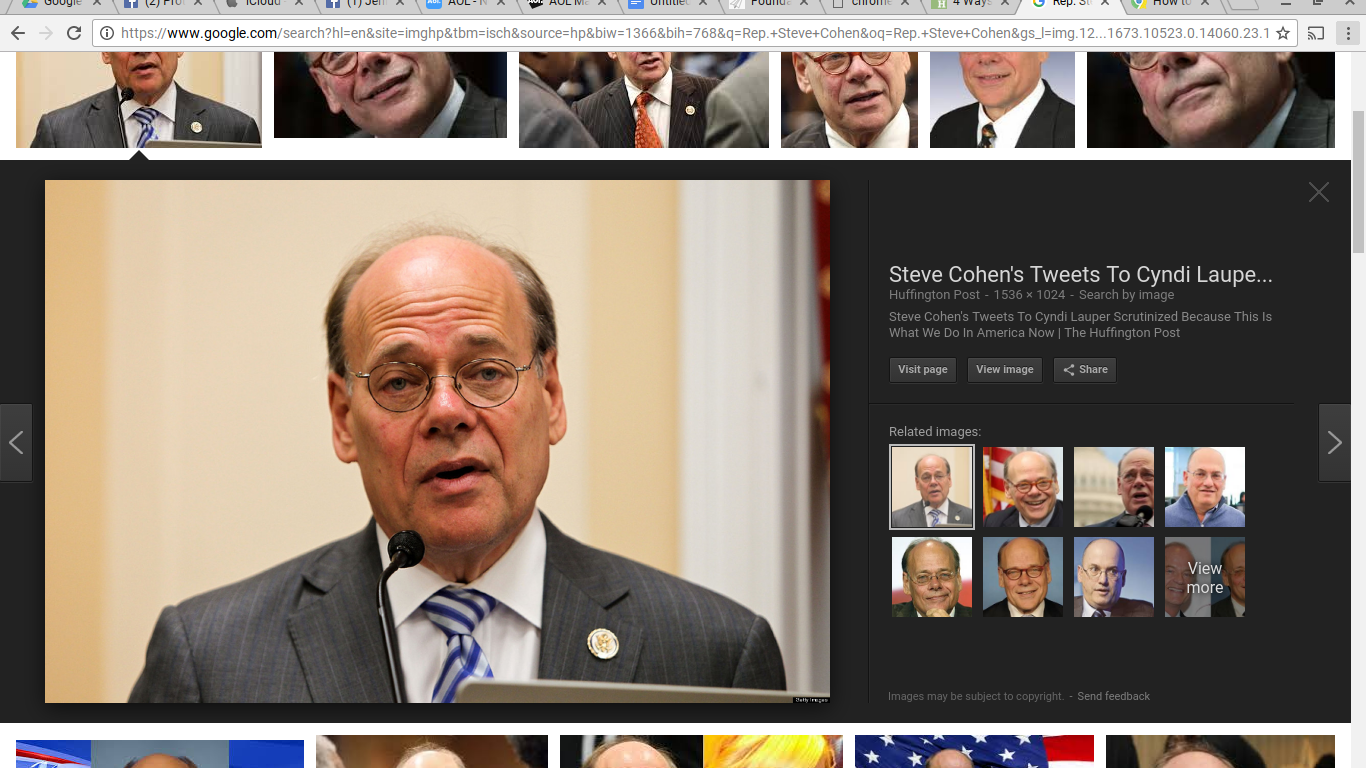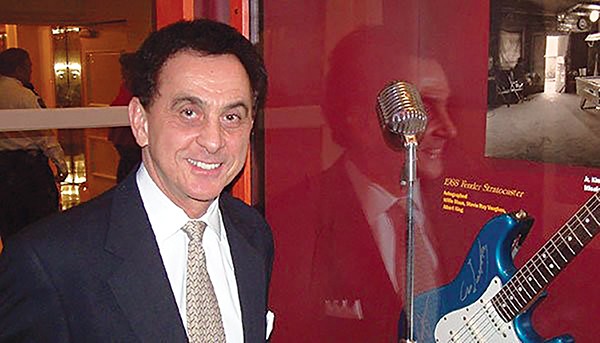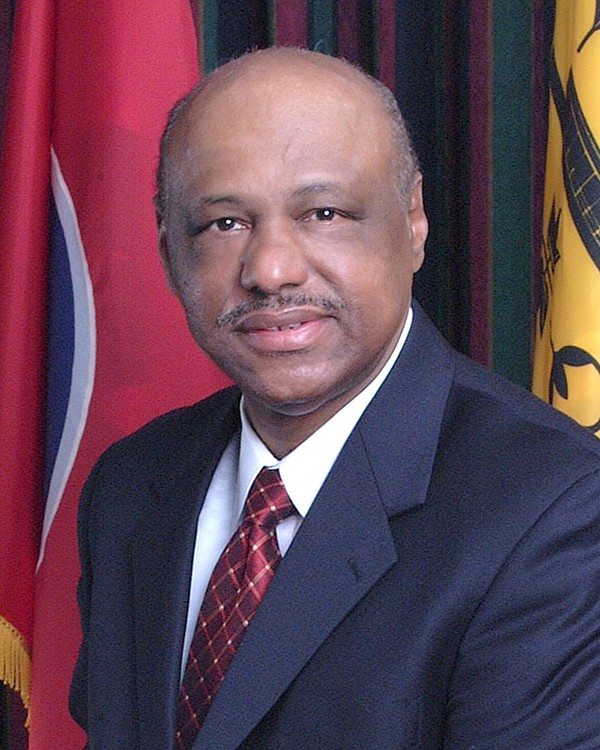Each week, the Flyer will feature adoptable dogs and cats from Memphis Animal Services. All photos are credited to Memphis Pets Alive. More pictures can be found on the Memphis Pets Alive Facebook page.

[slideshow-1]
Each week, the Flyer will feature adoptable dogs and cats from Memphis Animal Services. All photos are credited to Memphis Pets Alive. More pictures can be found on the Memphis Pets Alive Facebook page.

[slideshow-1]

The Memphis City Council has put off approving rate increases for Memphis Light, Gas, and Water (MLGW) customers since December, and did so again on Tuesday.
The utility is asking the council to approve water, gas, and electric rate increases totaling 10.5 percent over five years. The hikes would not take effect until 2020. The average customer would pay an extra $18.59 over the five-year period. J.T. Young, MLGW president, said the increased revenue would go toward improvements to the utility’s infrastructure.
The council voted 5-5 on the proposed gas rate increase before delaying votes on water and electric rate hikes for two weeks.
Voting no for gas were members Gerre Currie, J Ford Canale, Frank Colvett Jr., Cheyenne Johnson, and Jamita Swearengen. While Robinson, Reid Hedgepeth, Martavious Jones, Worth Morgan, and Kemp Conrad voted yes. Members Joe Brown, Berlin Boyd, and Sherman Greer were not present for the vote.
Young said several projects are on hold pending the council’s approval of the rate increases. He also said that putting off infrastructure repairs will only add to the cost of the improvements later. Young added that some of the improvements are needed to help the utility remain in compliance with safety standards.
Boyd, who is against the hikes, said MLGW has to find other ways to finance improvements to infrastructure. Boyd, echoed by Canale, pushed the idea of MLGW switching from TVA as a power source to a cheaper option or for TVA to lower its prices to become more competitive. This way the utility could use the money that would be saved to fund infrastructure improvements, Boyd said.
Young explained that ending MLGW’s contract with TVA requires a five year notice and that the potential savings from switching aren’t a guarantee.
Boyd said — putting himself in the shoes of citizens that might already be experiencing hardship — he can’t support any rate hikes.
Robinson implored her colleagues to approve the increases, arguing that there are several programs in place to offset the cost of utilities for those living in poverty here. She asked the council to consider the needs of the entire county, and not to harp on the 25 percent she estimates live below the poverty line here.
“We can’t kick the can down the street any longer,” Robinson said. “We have to consider all citizens, not just the few. We’re doing everything we can to put a safety net around them … What else do you want us to do? We’ve got to able to stand in front of our constituents and say this is in the interest of all ratepayers.”
Jones who also supports the hikes said the council is in its current position because of past councils’ inability to pass rate increases.
“Deferred maintenance does not go away,” Jones said. “So all that we are doing is postponing this, pushing it down the road, and just requiring a greater rate increase on the same rate payers that we are concerned about now by not taking any action.”
The council will vote on electric and water rate hikes at its meeting in two weeks. The council could also reconsider its vote on a gas rate increase then.
Shared Mobility
The city could invest $75,000 into shared-mobility infrastructure here.
 Explore Bike Share
Explore Bike Share
A Downtown bike-share station
The council is considering a resolution proposed by Conrad that would allocate the $75,000 from fees the scooter companies, Bird and Lime, pay to operate here. Per city ordinance, both companies give the city $1 a day per scooter. Conrad said that’s generated $100,000 in revenue and will generate $200,000 annually.
The $75,000 will go toward growing the nonprofit Explore Bike Share, Conrad said. Currently, EBS operates about 60 stations with close 600 bikes, but the additional funds would help the nonprofit expand by another 300 bikes.
“This is about investing in our public transportation ecosystem, by offering a lot of ways that you can get around and get you a job,” Conrad said. “One of the biggest reasons we have so many unfilled jobs is because of the transportation gap. Scooters and bikes are a good way to fill those.”
Second Convention Center Hotel
The council also passed a resolution Tuesday relating to the financing of the second convention center hotel.

The Tennessee Building Commission approved the use of revenue from the Downtown Tourism Development Zone (TDZ) to finance the hotel last year.
The resolution comes after the Sheraton hotel chain filed a lawsuit against the city for the tax incentives offered to Loews to construct the hotel. The lawsuit claims the incentive gives an unfair advantage to Loews.
Sheraton also claims the city didn’t take the necessary steps to follow through on the state’s approval of the TDZ request.
But the resolution approved Tuesday states that the council did act properly by considering a feasibility study and a hotel-need analysis before adopting the action by the Tennessee Building Commission.
Sheraton’s lawsuit against the city will be heard later this month in Shelby County Chancery Court.

Rep. Cohen
Memphis Democratic congressman Steve Cohen was decidedly lukewarm on Tuesday about the program of accelerated K-12 vo-tech education announced earlier in the day by Bill Lee just before the governor left Nashville for the State of the Union address in Washington.
That’s because the congressman has never been fond of state programs that have used lottery scholarship money for funding, and that’s precisely what the governor intends to do.
In releasing the broad outlines of his proposal to step up K-12 vo-tech programs in Tennessee, Lee did not reveal his estimate as to the program’s cost. “We know the real numbers,” he said, “ but we have to let the legislature see it. … These funds will come from the same funding pool that the other programs funded from the lottery are.”
The Tennessee Lottery was a project Cohen labored for more than two decades as a state senator to bring into being, and its original, and still chief, purpose was to provide HOPE scholarships for students needing a source of additional funding for their college education.
The text of the press release containing Cohen’s statement on the governor’s wish to tap the lottery fund follows: “Vocational and technical education are areas in which Tennessee lags, and they can help open job opportunities. But the people of Tennessee voted in 2002 for a Georgia-like HOPE scholarship that rewarded the more meritorious and the more needy. This is what scholarships should do, aim at merit and need. I ‘hope’ someone will recall that and increase HOPE and Aspire Award scholarships.”
All things considered, and Cohen being Cohen, that was fairly accommodating.
The “other programs” mentioned by Lee that have since tapped the lottery fund include Tennessee Promise, which pays for Tennesseans’ community college tuition, and TNReconnect, a subsidy for adults continuing their suspended education, both programs cited by Lee as precedents. When the Haslam administration first proposed diverting lottery proceeds to fund these programs, Cohen was critical, insisting that the funds should remain committed solely to their original purpose. But his disapproval was expressed in a much more animated way than was his statement about Lee’s proposal on Tuesday.
The congressman’s reaction to Lee was almost one of resignation, as if he realized that, having lost battles regarding the earlier diversions, he was unlikely to prevail on this newest front of the funding war. Hence his concession regarding the value of increasing vo-tech education and his final sentence, expressing a wish for separate measures to increase the HOPE and Aspire scholarships.
It is still too early to forecast how things turn out. Lee can count on the “honeymoon” effect in expecting lawmakers to accede to his wishes. But few can be as determined as Cohen in pressing a case. It will likely take a while to work out a solution amendable to both officials, but on the strength of what was said by both of them on Tuesday, it can’t be considered impossible.
Editor’s note: The legendary George Klein passed away Tuesday night. Here’s Randy’s Haspel’s tribute from last August. It seems a fitting farewell — BV
One of my favorite shows on local television is Memphis Sounds with George Klein on the Library Station, WYPL Channel 18. The “Geeker (pronounced jeeker) in Your Speaker” does pretty much what he always has: interview artists and musicians, both famous and non-famous, that figure into this thing we call Memphis music.
The only problem is that for the last several weeks, George has taken a leave of absence because of health reasons. His substitutes, Leon Griffin, Dave Brown, and William Bell, have all been great, but nobody does it like GK. Now in its 12th year, George has interviewed everyone from Isaac Hayes to Justin Timberlake, along with scores of other musicians, while treating disc jockeys from small stations with the same respect reserved for superstars. His encyclopedic knowledge of rock-and-roll and radio give Klein decades of anecdotes to call upon — from being part of the original “Memphis Mafia” to the list of musical giants who Klein has promoted over the years. Always entertaining, Memphis Sounds is dedicated to the promotion and preservation of Memphis music, something that Klein has been squarely in the middle of for his entire professional life.

George Klein
Klein has been a fixture in Memphis radio and television since he was an assistant to Dewey Phillips on WHBQ back in the 1950s. Dewey may have been the first disc jockey to play an Elvis record, but George was the second. Beginning his radio career in Osceola, Arkansas, George worked several small stations before landing a job in Memphis at powerhouse WMC, which wanted to experiment with this new rock-and-roll thing.
After a year or so, the station’s management told George that this rock-and-roll stuff was just a passing fad and let him go. Fortunately, George’s Humes High School classmate, Elvis Presley, hired him on the spot — beginning with a whirlwind year traveling with The King and culminating with a bit part in Jailhouse Rock and, subsequently, seven other Elvis movies.
The friendship between Klein and Presley has become legendary, from George’s book, Elvis: My Best Man, to his radio program, “George Klein’s Original Elvis Hour,” now in its 34th year. His syndicated, “The GK Show,” on Sirius XM, broadcast from Graceland, is in its 10th year. Priscilla Presley even asked George to accept the award for Elvis’ induction into the Rock and Roll Hall of Fame.
But this is not about what George did for Elvis; it’s what GK has done for the city of Memphis.
I first became aware of George when he was the afternoon disc jockey on WHBQ. He was a rhyming DJ who spoke “hep talk” and could go on a five-minute rhyming patter without missing a beat.
George enjoys the story of how we met when I was 13. Hitchhiking was forbidden in my family … so, I was standing on the corner with my thumb out when a shiny Cadillac pulled over. It was George. He encouraged me when I told him I had started a little band, and when he found out I was heading for Poplar Tunes Downtown, he drove me the entire way and dropped me off at the front door.
That’s the kind of guy George is — generous to a fault. In 1964, GK’s radio popularity led to his hosting a weekly television show called Talent Party. He brought in the finest artists around to lip-sync their latest hits, but most importantly, GK hosted every ambitious, young garage band in town. If they didn’t have a recording, George sent them to Roland Janes at Sonic Recording to cut songs, which they could then perform on Talent Party.
Being the beneficiary of several of GK’s invitations, I can testify that every time we appeared on Talent Party the bookings flooded in. In essence, GK was responsible for the whole ’60s garage-band scene which ultimately produced some of Memphis’ most notable entertainers. Scores of local musicians owe their start to George’s generosity.
Klein also arranged for the first African American to perform live on local TV. Fats Domino not only sang live, he recorded several songs to be broadcast on future shows. After George booked Fats, it was no problem for him to get James Brown, Jackie Wilson, and Sam Cooke. Talent Party was on every Saturday afternoon for 12 years.
I recently spoke with artist manager and music entrepreneur Jerry Williams, George’s friend of nearly 70 years. Jerry said the annual George Klein Christmas Charity Show was the longest running charity in Memphis. The first one was held in a wrestling ring at the Mid-South Coliseum. While the grapplers took a breather, GK featured Charlie Rich, The Bill Black Combo, and Ace Cannon. The next year, the show was moved to the National Guard Armory and then to the Fairgrounds to accommodate the crowds. Major artists donated their talents. Donated items were auctioned with a professional auctioneer, who flew to Memphis at his own expense. In fact, everyone worked for free — the bands, the promoters, the building owners, and the concessionaires. One hundred percent of the profits went to local charities.
After 42 years and hundreds of thousands of dollars raised, the yearly gala ended, but the event’s “Rainy Day Fund” produced enough revenue to establish the George Klein Broadcasting Scholarship at the University of Memphis. Williams said that he knows of no other person who has dedicated more of his life to the betterment of this city than Klein.
Now it’s time to say thank you. Thank you, George, for convincing Elvis that recording at American Studios was a good idea. Thank you, George, for naming the Guilloteens. Thank you, George, for the nights at Fridays or Alfred’s where you spun records and donated the proceeds. Thank you, George, for being the first to play Johnny Cash on the radio and for introducing the Beatles at their Memphis show. Thank you, George, for hosting the Memphis Mafia program during Elvis Week every year from 1978 to 2017 and donating the funds to the U of M. Thank you, George, for all the years of entertainment. And thank you, George, for a lifetime of promoting the great music and artists that come from your home town. We love ya’ madly.
Randy Haspel writes the Recycled Hippies blog.

George Klein, Cindy Schilling, Dara Klein and Jerry Schilling at The Blues Ball.
George Klein. Two words you just know if you live or ever lived in Memphis. Or if you’re an Elvis fan.
Klein, a radio and TV personality – and the King’s buddy – died Feb. 5 at the age of 83.
He was a deejay. He had his own TV show. He made personal appearances seemingly everywhere, including Graceland during the commemorations of Elvis’s death in August. He was even in Elvis movies, including “Jailhouse Rock.”
I remember him as gracious and kind. The first time I saw him was in the 1970s at the old Tadpole discotheque. It was like seeing a movie star. I don’t think I said a word to him that night.
Over the years I called him at his home or work to verify something about Elvis or find out something about the King for a newspaper story. He always called me back and he told me everything I wanted to know.

George Klein
One of the last times I called him was to see if he thought Elvis ever ate the meatloaf at the Arcade restaurant. It was for a food story. Klein said he never went with him to eat at the Arcade, but he told me about the type food Elvis liked to eat. I think Klein knew everything about Elvis.
But nobody knew Elvis like his close friends Priscilla Presley and Jerry Schilling.
The first time Priscilla heard about Klein was when she was in Germany, she says. Elvis was telling her who his friends were. “And George, of course, was at the top of his list,” Priscilla says.
“The first time I met him was when I went to Graceland in 1962 for Christmas. When he (Elvis) had asked me to come there for Christmas. And we drove up the drive of Graceland and he opened up the door and all of his friends were there that he wanted me to meet. And he introduced me to family and friends. People that he thought were very special. George, of course, was right there among them.”
Elvis, she says, “really thought George to be a great friend. They had gone to Humes High School.”
Elvis and Klein “kept their friends close to their hearts over the years.”
And, she says, ‘And beyond with George.”
What made Klein special? “His loyalty. His friendship. His support. I don’t think I’ve ever heard George say a bad word about anyone. He remembered everyone. He was charitable. He would emcee foundations. He was just a great human being.
“You loved having him around. His sense of humor. His relationships with all his friends. He had so many friends that embraced him and vice versa.”
Elvis and Klein “had their own language,” Priscilla says. She recalls them saying to each other, “You Got it right, Mister.”
Priscilla, who kept in touch with Klein, spoke to him two days before he died. “I’ve been speaking with him at the hospital.”
The last time she saw him was when she presented him his Rock ‘n’ Roll Hall of Fame Award. “I went and brought it to his home.
“It’s just hard to believe that he’s gone. I don’t know what Memphis will be like without George Klein.
“He’s an icon.”
Schilling, a close friend and business associate of Elvis, and Klein were friends for decades. “He has been my dear friend since the beginning – when my mother was his babysitter and we lived across the street from each other on Leath Street in North Memphis – 777 and 780.
“At Humes High School, George was the president of the class. Elvis didn’t have any real friends at that time in school ‘cause he came up from Mississippi. George was just nice to him. It wasn’t like they were best friends in high school, but George was nice to him. And so right out of high school when Elvis made the record and everything, he trusted George.”
And, he says, the “people Elvis remembered who were nice to him in high school” became the “nucleus of the start of the Memphis Mafia.”
Elvis “didn’t hire like an accountant or a bodyguard or a bookkeeper. He hired people he trusted. Because you weren’t just working for him at that time. You were living with him.”
And, he says, “It was a family. We were all brothers. George was really kind of the glue of all the friends and stuff of Elvis. He knew everyone from every era, whether it was Hollywood, Memphis, early days, later days, George was right there.”
George, he says, “was always nice to me. In later years he called me his ‘West Coast manager.’”
Schilling got Klein a writer for his book, “Elvis: My Best Man: Radio Days, Rock ‘n’ Roll Nights, and My LIfelong Friendship with Elvis Presley.”
“I was his friend sounding board. We never had an official management relationship. We were too good of friends for that.”
George Klein was always George Klein, Schilling says. “George was the same George that he was when we lived across the street from each other. He was six years older when I got to know Elvis in ‘54. George never changed. I think he changed a lot of things.”
Klein, he says, was “a pioneer on rock and roll radio. And when he had the TV show at WHBQ he was the first person in Memphis to have black artists on his station. I think Fats Domino was the first artist.”
Along with disk jockey Dewey Phillips, Klein “was right at the heart of it all.”
The last time Schilling saw Klein was two weeks ago. “Cindy (Schilling’s wife) and I went out to the Memphis Jewish Home. George knew we were coming and, thank God, he was having a good day. Which was not a good day normally. But a good day for George. We held hands. We talked almost every weekend of our lives whether on the air or off the air. But we always talked about basketball.”
Schilling became president of the Memphis Music Commission when Coach John Calipari became University of Memphis basketball coach. “He and George and I became really good friends along with R. C. Johnson, the athletic director. Coach Cal, when he went back after the game to talk to the team brought me and George back and we would listen.”
Schilling loved basketball, but he would defer to Klein when somebody would ask them what they thought about the game. Schilling would say, “Yeah, George, tell Coach Cal what we think.”
All the basketball players knew Klein and called him “GK” and “The Geeker.’ He was loved across the board.”
People outside of Memphis knew him, too, Schilling says. “I can talk to U2 or anybody about George Klein. They all know who he is.”
Klein, Schilling says, “never wanted to leave Memphis. He loved Memphis. And he had opportunities out here in Hollywood with the top radio station. He just didn’t want to leave Memphis.”
Then there’s the unmistakable George Klein voice. “Elvis would call it his ‘radio voice:’ ‘Oh, George, knock off that damn radio voice.”
Schilling says he told Priscilla, “I don’t think the bang of George leaving has hit me yet. He was truly for the last 40 years or whatever my best friend.”
Those days when he and Klein lived on Leath Street don’t seem so long ago, Schilling says. “I can hear his mother calling ‘George Boy, get in this house.’ I hope GK hears her calling now.””
 Michael Donahue
Michael Donahue
Priscilla Presley and Jerry Schilling

George Klein with Cindy Schilling, former Shelby County Mayor Bill Morris, Pat Kerr Tigrett and Jerry Schilling at The Guest House at Graceland.
 City of Memphis
City of Memphis
Councilman Joe Brown was at the center of Tuesday’s heated conversation.
The Memphis City Council committee chambers heated up Tuesday as members debated proposed changes to council rules and procedures.
Chair Kemp Conrad proposed two weeks ago to appoint a second vice chair who could step in when either or both the chair and vice chair are not present.
Tuesday councilman Joe Brown opposed the idea, questioning the need for a second vice chair: “Never in the history of this council have we had a second vice chair.”
As Conrad tried to table the conversation for the full council meeting, Brown interjected: “Let me tell you something, nobody is afraid of anybody. You’re travelling in the wrong lane and you’re after something, Kemp. I know you and this looks like corruption.”
Brown said he advises his colleagues to vote against “something like this.”
Brown also raised concerns in the meeting about a change of council rules that councilwoman Patrice Robinson proposed in the wake of the recent controversies surrounding the District 1 vacancy.
One of the rule changes that Brown contested was a move to allow a majority of duly-appointed members rather than seven members to make a decision when the council has vacancies. Robinson explained that the change is to add clarity for the council and the public.
But, Brown said the change is irregular according to the rules that we did have, calling it “wrong.”.
“It never ceases to amaze me how people want to change processes,” Brown said. “I don’t know what this game is all about, but you try to change something to fit people’s needs and not the needs of the public.”
However, Robinson said her reasoning behind the change is motivated by the conflicting passages of council rules she discovered during the November and December attempts to fill the District 1 seat.
“I took the time to sit down and read it and highlight them so staff could get a legal opinion,” Robinson said. “It’s so we’re all on the same page. I’m not trying to change it just to change it. I’m trying to see to what we have here is clear.”
Brown continued to challenge the rule change, calling it “murder.” Brown said the council “not to long ago murdered Rhonda Logan,” one of the top candidates in the running for District 1.
“Now this is a double murder that you just came with,” Brown said. “Wrong is wrong and right is right.”
The tense debate led Conrad to read a passage from the council rules of decorum for meetings, encouraging his colleagues to “think about what we say and how we say it before we speak to each other.”
The full council will vote on whether or not to add a second vice chair at its full meeting this evening. In two weeks, the council will return to the discussion of changes to council rules and procedures.

Tonight (Tuesday) at Crosstown Arts, Indie Memphis’ weekly Shoot & Splice series brings an evening with Munirah Safiyah Jones, the creator of Juntland, an animated webseries about the perils of dating in 2018. Here’s the episode that got Jones noticed when it went viral.
Juntland, Supernatural Swedes, and Hebrew Neo-Noir at the Cinema This Week.
Wednesday night at Malco Ridgeway, Indie Memphis brings the acclaimed Sweedish film Border. Directed by Ali Abbasi and written by Let The Right One In‘s John Ajvide Lindqvist, the film made a splash at Cannes, winning the Un Certain Regard (“Another point of view”) award. It’s going to be Nordic and creepy.
Juntland, Supernatural Swedes, and Hebrew Neo-Noir at the Cinema This Week. (2)
On Thursday, The Morris and Mollye Fogelman International Jewish Film Festival teams up with Indie Memphis to present Shelter. Director Eran Riklis uses the classic noir trope of changing identity through radical plastic surgery as a jumping off point for the taut Israeli thriller. Tickets are available here for the screening at the Memphis Jewish Community Center.
Juntland, Supernatural Swedes, and Hebrew Neo-Noir at the Cinema This Week. (3)
On Thursday at the Paradiso and Malco Collierville is 2019’s best title (so far), I Want To Eat Your Pancreas. It’s an anime feature based on a tragic, coming-of-age novel by Yoru Sumino, so actual onscreen cannibalism is unlikely. Still, a guy can dream.
Juntland, Supernatural Swedes, and Hebrew Neo-Noir at the Cinema This Week. (4)
Finally, on Sunday, the MIJFF presents one of its popular dinner and a movie programs with Heading Home: The Tale of Team Israel. This uplifting sports documentary by Seth Kramer, Daniel A. Miller, and Jeremy Newberger traces the Israeli national team’s journey to the “World Cup Of Baseball”.
Juntland, Supernatural Swedes, and Hebrew Neo-Noir at the Cinema This Week. (5)

Look for later hours and a new dinner menu when the new Swanky’s Taco Shop opens Downtown in the old LYFE Kitchen space in The Chisca on Main. The restaurant, which will become the third Swanky’s location, is slated to open in April, says owner/founder/managing partner Matt Wilson.
“I would anticipate us staying open probably on the weekends,” he says. “Probably the bar open until until 12 or 12:30. Something like that. The kitchen open till 11 on the weekend and probably 10 during the week.
“We will be providing our casual, quick lunch option, which has been shown to be successful for us for almost 14 years. Nighttime table service and a different dinner menu will be unveiled at that location. You won’t consider it a lunch spot, if you know what I mean. A more refined atmosphere.”
And, he says, the new location offers “a great patio opportunity.”
The old LYFE space is only three years old, so Wilson says, “For the majority of it, we’re not going to change a whole lot. Do some demolition of walls and things to open up our queue.”
But, he says, “It’s in really good shape. They took really good care of it.”
They will move into 3,885 square feet, which includes the interior of the restaurant, the dining room and bar, says Chase Carlisle, managing partner of The Chisca on Main. The space also comes with a 1,200 square-foot-patio.
They haven’t set a date for the opening, but Wilson hopes it will be in April.
Wilson says, “So much happening in Downtown. It’s going to be our third store in Memphis. We looked Downtown for years and years and we haven’t found the right spot. And timing wasn’t right. We looked at One Commerce Square probably seven year ago. It didn’t work out.
“Now I feel there’s so much momentum for our great city and what’s going on Downtown. We cater to all sorts of clients, who have been asking for Swanky’s to come Downtown for a long time. Chase Carlisle brought the opportunity to my attention and we started talking about it late last spring.”
David Delapav, who ran Salsa for 14, 15 years, will be “the man in charge Downtown. And we’re already hired some folks and got them training at the Swanky’s on Colonial. We’re fired up. We anticipate a bigger bar business there than we have at our other stores.”
What sets Swanky’s apart? “It’s a commitment to serving the freshest food that we possibly can. We get produce delivered six days a week. And everything we do there is as fresh as possible. It’s certainly not fancy, but we feel we can deliver some healthy alternatives and no MSG garbage. We keep that stuff out and offer fresh flavors.”
Their catering business, with their fajita bars, “continues to grow at leaps and bounds.”
“Tenn Mex” is how they describe their food. “This concept was born in Memphis. Whether it’s our pretty sizable variety of bourbons we offer to some different things we’ve done dessert-wise, we feel like we’ve kept our connection to the Mid-South when we can.
“The whole deal is not possible without having a big crew of folks that are great team members. And we’re only as good as our frontline.”

The Memphis City Council is considering an ordinance that would appoint a fiscal agent to manage the city and county pre-Kindergarten fund.
The ordinance is a joint ordinance of both the council and the Shelby County Commission. It does three things, Doug McGowen, the city’s chief operating officer told a council committee Tuesday.
“First of all, it says that the city and county are in it together moving forward,” McGowen said. “The second thing is it establishes that we will use a joint fiscal agent, and thirdly it allows city and county officials to serve on that board.”
The fiscal agent, who would serve for three years, would be tasked with establishing a quality pre-k program, as well as managing and distributing pre-K funds.
The dollar amount needed to fund the county-wide universal-needs pre-K is $16 million, McGowen said.
Previously, the city received $8 million of federal assistance to fund 1,000 pre-K seats in the county, but McGowen said that money will run out this summer.
The city and county now want to fund 2,000 seats beginning in the 2019-20 school year.
To do that, McGowen said last year the city put $3 million of excess city revenue as seed money into a dedicated pre-K fund. Additionally, a portion of city property tax revenue and taxes paid by companies whose PILOT (pay-in-lieu-of-taxes) incentive has expired goes to the fund.
The county commission approved the ordinance to appoint a fiscal agent on the first of three readings last week. The council is set to vote on the first of three readings in two weeks. If approved by both bodies, the county commission will issue a request for qualifications to choose a fiscal agent, who Memphis Mayor Jim Strickland and Shelby County Mayor Lee Harris would ultimately select.
 Countywide Juvenile Justice Consortium
Countywide Juvenile Justice Consortium
All reports related to the Department of Justice (DOJ) investigation into the Shelby County juvenile justice system could soon be released to the public.
Shelby County attorney Marlinee Iverson said Tuesday morning that she has secured authorization from all of the parties related to the probe to submit their work. Iverson said the DOJ has agreed to not object if the reports are completed and released to the public.
 Shelby County Juvenile Court/Facebook
Shelby County Juvenile Court/Facebook
“We continue to take proactive measures to make sure that fewer kids are arrested and detained and that, when kids do interact with the system, their constitutional rights are absolutely protected,” Iverson said in a statement Tuesday. “We think these reports will help. Furthermore, given the high level of public interest in these issues, these reports will absolutely be immediately released to the public.”
[pullquote-1] Shelby County Commissioner Mark Billingsley requested the the reports. For the last several weeks, those in the county attorney’s have been working and negotiating with all parties related to the investigation.
According to Iverson, the equal protection monitor has agreed to submit a report and the due process monitor submitted a final report in December.
While the facility monitor has not yet confirmed she will submit a final report, “the county attorney’s office is hopeful that that report will also be forthcoming.”